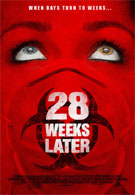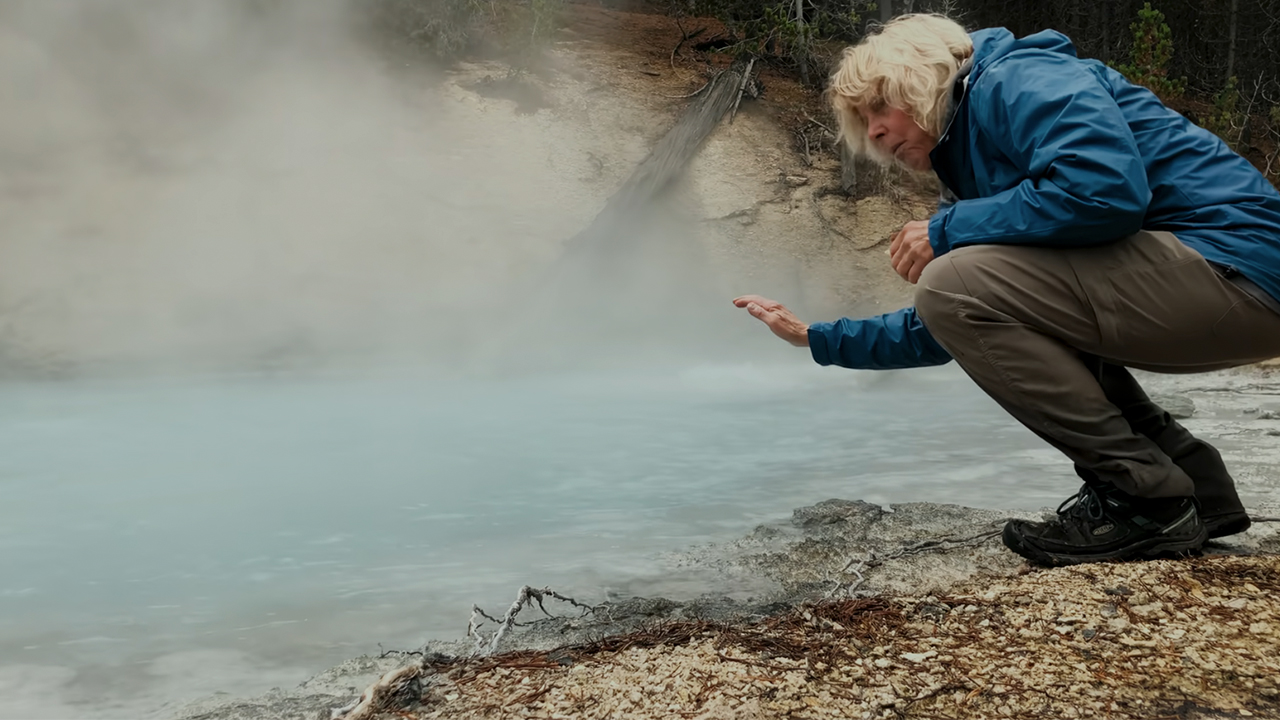In 2004 28 Days Later arrived as a pleasant surprise. British director Danny Boyle and writer Alex Garland had delivered a real modern rarity: A horror film with substance. Set in the early days of a pseudo-zombie apocalypse, the film followed a small group of people trying to survive in a world gone completely mad. What’s great about that original film is that it’s so much more than just another post-apocalyptic horror movie. 28 Days Later had something to say, as it explored the breakdown of society and questioned the very heart of human nature.
Flash forward three years and Fox Atomic is releasing 28 Weeks Later, a sequel made with a screenplay written by group of different writers, new actors, and helmed by a replacement director. The result is a film that feels like it only exists to set up another movie. It’s as if Fox executives counted the first movie’s box office receipts and then locked a committee of writers in a room and asked them to come up with a way to stretch this idea out into three movies. 28 Weeks Later is means to an end and, unlike the original movie, it has absolutely nothing to say except stay tuned and give us your money.
28 Weeks Later picks up, as the title suggests, 28 weeks later after the release of the Rage virus which started everything in Days. Rage is transmitted by body fluids and anyone coming into contact with the liquid innards of one of the infected is instantly turned into a crazed, flesh-eating, mindless killer. After the first movie the island of Britain was left ravaged and devastated, but apparently the outbreak was confined to those shores. 28 weeks later all of the infected, having eaten all the flesh they could find, have died of starvation and a US led military force has moved in to rescue the handful of survivors still left and repatriate those British citizens who were abroad at the time of the disaster.
Anyone who has seen a movie before will instantly realize this is a mistake. Should the world ever find itself in a similar situation, let’s hope the United Nations has the good sense to sterilize the place with a few nuclear bombs before letting people back in. Sadly, that would leave us with a pretty short movie and so we follow the well-intentioned but doomed military and civilian population as things go awry and they lose control. The film starts out following Don (Robert Carlyle), a father who was there during the initial outbreak and survived to be re-united with his kids by the military’s rescue force. His story is an interesting one, and might have provided the philosophical punch 28 Weeks Later so desperately needs to justify its existence but, after only a cursory brush up against his tortured past, the movie abandons him in order to devolve into a big, predictable, pseudo-zombie mess. It might as well be the latest Resident Evil sequel.
Except at least Resident Evil has the scantily clad hotness of Milla Jovovich kicking ass to help sell it. 28 Weeks Later winds up following a couple of kids as they run from the infected, leaving a trail of poorly acted and extremely dead adult characters behind them. The movie seems more interested in lingering over wide, aerial shots of a deserted London than in actually telling a story. When something important does happen, it’s buried under so many camera gimmicks that it’s hard to figure out what’s going on anyway. By the way, 28 Weeks Later’s idea of cinematography is to shake the camera around like it’s being ripped apart by zombies during action sequences, thus obscuring your view and, presumably, saving a lot of money on bothering with things like special effects.
This is a really thin, poorly developed script directed by a stand-in who struggles and fails to mimic Boyle’s movie without adding in anything of his own. Ok, that’s not fair. He does do a night-vision sequence. That’s new. It’s just not very good. If I wanted to watch the movie through a night vision scope I’d bring one with me.
There are a few solidly entertaining moments in the film involving the military’s attempt to exterminate the spreading virus and the civilian attempt to escape from it. A car pushing sequence which evokes the one from the first movie is well executed and there’s the aforementioned abandoned sub plot involving Robert Carlyle’s father character. It’s not enough though. By the time 28 Weeks Later shakes out and figures out where its going it becomes pretty evident that the movie only exists as a setup for whatever globe-spanning, big-budget zombie movie they’re planning to turn the franchise into next. This one is more of a paper-thin transition between Boyle’s gritty, gutty, unique approach to zombies and an almost certainly impending third movie in which they stick the number 28 in front of another standard, glossy, epic zombie apocalypse clone directed by Paul W.S. Anderson.












